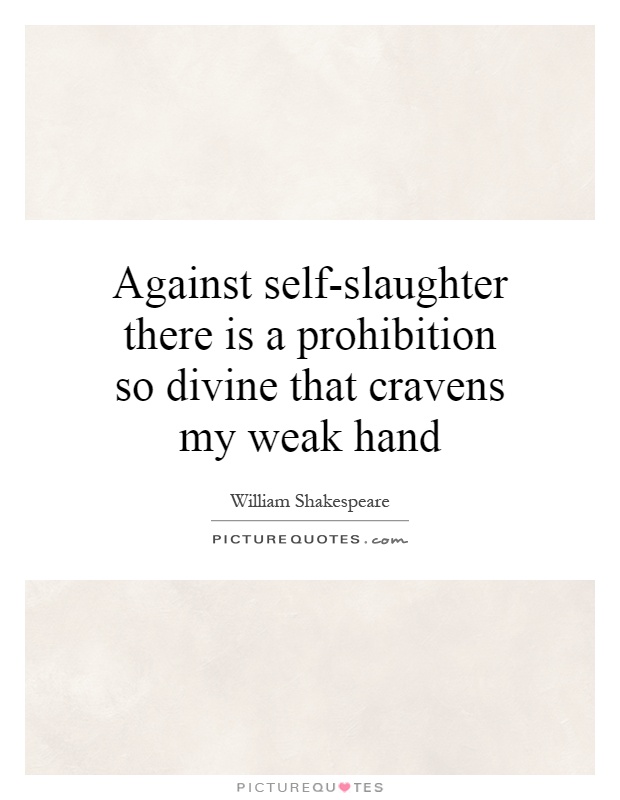Against self-slaughter there is a prohibition so divine that cravens my weak hand

Against self-slaughter there is a prohibition so divine that cravens my weak hand
The line "Against self-slaughter there is a prohibition so divine that cravens my weak hand" is a powerful statement made by William Shakespeare in his play "Hamlet". This line is spoken by the character of Hamlet himself, as he contemplates the idea of taking his own life. In this moment, Hamlet is grappling with intense feelings of despair and hopelessness, and is considering ending his own life as a way to escape his suffering.The phrase "Against self-slaughter there is a prohibition so divine" suggests that there is a higher power or force that prevents Hamlet from taking his own life. This divine prohibition could be interpreted as a moral or ethical code that prohibits suicide, or it could be seen as a reference to religious beliefs that view suicide as a sin. In either case, Hamlet feels a strong sense of restraint or prohibition that prevents him from acting on his suicidal thoughts.
The phrase "cravens my weak hand" further emphasizes Hamlet's internal struggle. The word "cravens" suggests that Hamlet's hand is weak or cowardly, unable to carry out the act of self-slaughter. This implies that Hamlet's desire to end his own life is in conflict with his sense of morality or duty, and that he is unable to overcome this internal struggle.












 Friendship Quotes
Friendship Quotes Love Quotes
Love Quotes Life Quotes
Life Quotes Funny Quotes
Funny Quotes Motivational Quotes
Motivational Quotes Inspirational Quotes
Inspirational Quotes